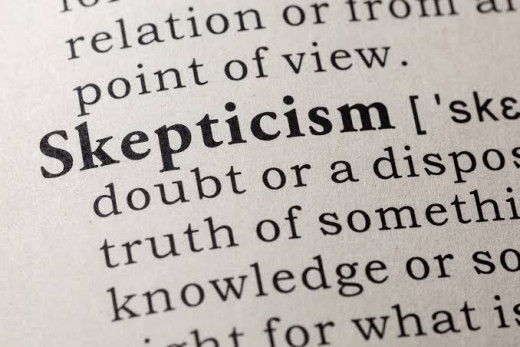By Barrett Evans ~
Indeed, it is proper to doubt, Kālāmas, and to be perplexed. When there is a doubtful situation, perplexity arises. In such cases, do not accept a thing by recollection, by tradition, by mere report, because it is based on the authority of scriptures, by mere logic or inference, by reflection on conditions, because of reflection on or fondness of a certain theory, because it merely seems suitable, nor thinking: “This religious wanderer is respected by us.” But when you know for yourselves: “These things are unwholesome, blameworthy, reproached by the wise, when undertaken and performed lead to harm and suffering”—these things you should reject. —The Buddha, Discourse to the Kālāmas
In this famous passage from the Discourse to the Kālāmas, the Buddha makes a simple statement that can seem completely radical for the mind held in dogmatic religious thinking. Namely, that it is proper to doubt the doubtful. In almost any other area of inquiry, this proposition is entirely uncontroversial. In many religious systems, however, doubting the dubious is seen as a grievous moral failure. It is even considered scandalous by many to question whether traditional religious beliefs are true. In the words of Sikh scholar Hew McLeod, “Every religion includes a host of followers for whom the academic analysis of the faith is treated as a heinous crime or something approaching one.”
A major part of letting go of the dogmatic life is to release the rather extraordinary notion that having doubts about complex, unverifiable, and speculative metaphysical ideas and fantastic miracle stories is worthy of the worst sorts of condemnation. It would seem that the confidence of any belief, no matter what the area of inquiry, should be commensurate only with its likelihood, the quality of the evidence behind it, and its capacity to bring good to the world. Doubting the dubious may be best understood not as sin but as an ethical act—and an indispensable and foundational step in seeking what is true. As medieval philosopher and theologian Peter Abelard (1079-1142) wrote in his controversial Sic Et Non: “Indeed, the first key of wisdom is defined as constant or frequent questioning …. [T]hrough doubting, we arrive at questioning; in questioning we perceive the truth.”
In extolling the virtues of doubt, I do not have in mind the harsh, unyielding doubt of the dogmatic or uniformly anti-religious contrarian. Rather, it is the doubt that strives to remain teachable, is deeply interested in new questions and perspectives, and is fully cognizant of the finite and fallible nature of human judgments.
I would further posit that acknowledging reasonable doubts is not only ethically sound, but psychologically healthy as well. Modern cognitive theory in fact views defective thought patterns as a primary cause of mental suffering. As prominent psychologist Gerald Corey explains: “Cognitive therapy perceives psychological problems as stemming from commonplace processes such as faulty thinking, making incorrect inferences on the basis of inadequate or incorrect information, and failing to distinguish between fantasy and reality.” Within this framework, doubting unrealistic or toxic religious ideas may be seen as a path to better mental health through a more thorough personal honesty.
Author blurb: A former Protestant seminarian and ex-Roman Catholic, Barrett Evans is an agnostic who has retained a fascination with non-supernatural contemplative practices. He holds graduate degrees in divinity and counseling from an evangelical seminary and an undergraduate degree in history from Davidson College; he has also taken graduate coursework in religion at Wake Forest University. His book The Contemplative Skeptic is an exploration into the benefits of combining doubt with a non-supernatural, contemplative way of being.
Author link: The author’s personal story can be found at American None: “Doubt and the Good Life”


Comments
Post a Comment